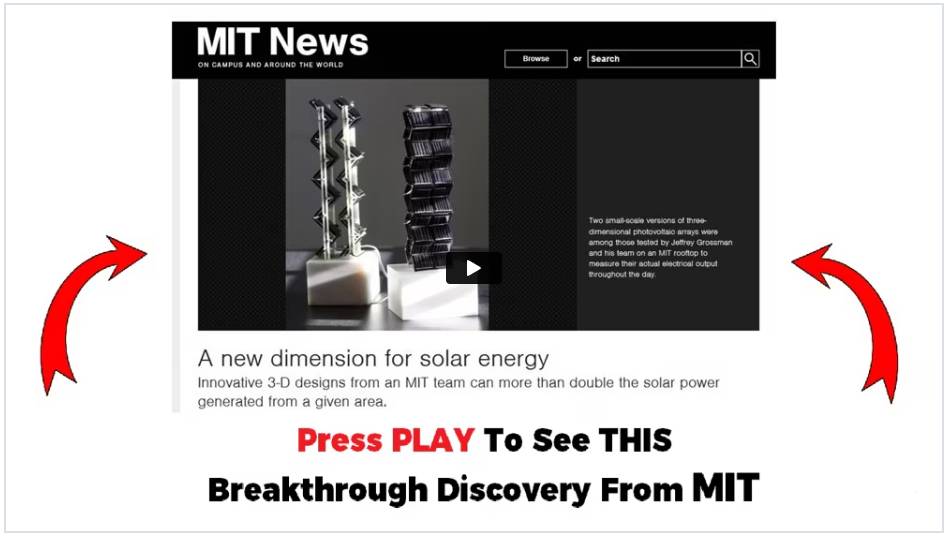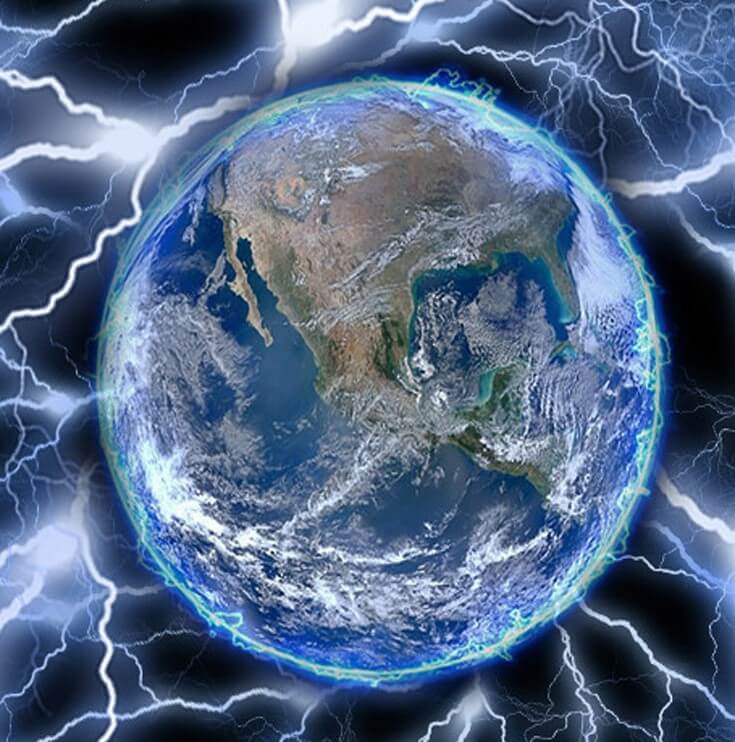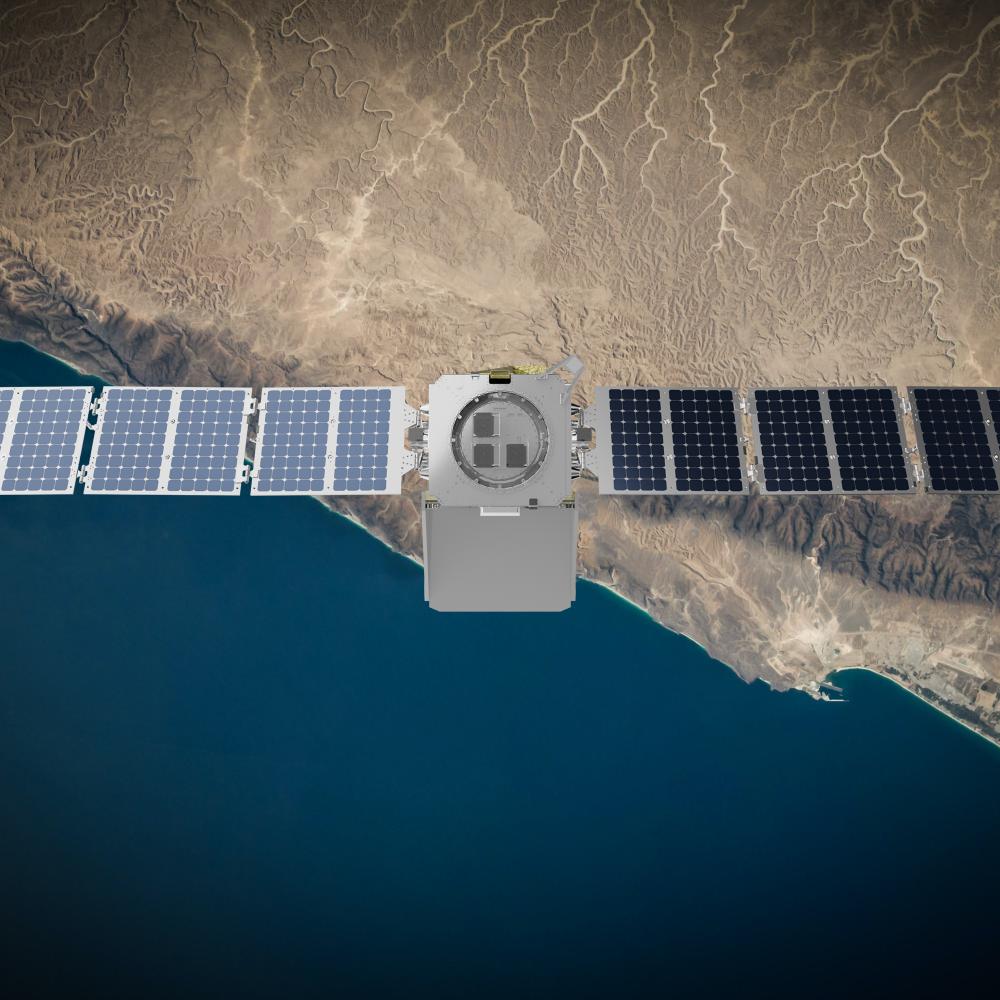MethaneSAT’s development marked a shift in how environmental data is collected and shared. Unlike many state-run satellites whose data is restricted or delayed, MethaneSAT was created to provide rapid, open-access emissions data to encourage faster policy responses and regulatory action.
The post Jeff Bezos’ climate change satellite goes dark, becomes space junk appeared first on Green Prophet.
Tracking dangerous methane gas, the Methanestat satellite seems to have lost power after 1.5 years into 5-year mission
A satellite designed to track one of the planet’s most potent greenhouse gases – methane – has gone dark, ending a pioneering mission led not by governments or corporations, but by a nonprofit. MethaneSAT, developed by the Environmental Defense Fund (EDF) and launched in March 2024, lost contact with Earth on June 20, 2025. Engineers have confirmed that the satellite has lost power and is likely unrecoverable.
“The advanced spectrometers developed specifically for MethaneSAT met or exceeded all expectations throughout the mission. In combination with the mission algorithms and software, we showed that the highly sensitive instrument could see total methane emissions, even at low levels, over wide areas, including both large sources (super emitters) and the smaller ones that account for a large share of total methane emissions, which were not visible from space until MethaneSAT,” the group said in a statement.
The mission was intended to last at least five years and represented a bold step in climate monitoring. Funded in part by the Bezos Earth Fund and operated in partnership with Google and the government of New Zealand, MethaneSAT was among the first environmental satellites operated by a civil society group rather than a national space agency. Its primary aim was to locate and quantify methane emissions—many of which originate from oil and gas infrastructure—using advanced sensors and cloud-based mapping tools powered by Google Earth Engine.
Methane is a powerful greenhouse gas, estimated to be more than 80 times more potent than carbon dioxide over a 20-year period. While methane emissions are responsible for roughly 30% of current global warming, many leaks remain undetected or underreported.
MethaneSAT was designed to fill this gap, offering near real-time, independent data on where emissions originate and how large they are. During its 15 months of operation, MethaneSAT successfully mapped emissions from major oil and gas basins, including the Permian Basin in the United States and areas in Central Asia.
Its data—collected at higher resolution and over larger areas than many existing satellites—was made available to governments, scientists, and the public.EDF stated that while the satellite has ceased functioning, the data already collected will continue to be analyzed and published. In a public update, EDF noted that the engineering team is still investigating the cause of the failure, but all efforts to reestablish communication have so far failed.
“We learned this morning that the satellite has lost power, and that it is likely not recoverable,” the organization said in a statement.Despite the setback, EDF emphasized that the project had already achieved many of its scientific goals and had demonstrated the feasibility of nonprofit-led space missions. MethaneSAT’s development marked a shift in how environmental data is collected and shared. Unlike many state-run satellites whose data is restricted or delayed, MethaneSAT was created to provide rapid, open-access emissions data to encourage faster policy responses and regulatory action.
EDF has not confirmed whether it will pursue a replacement mission, but it has signaled that the broader goals of MethaneSAT will continue. Additional monitoring via aircraft and other technologies is expected to supplement the loss.
While the satellite’s operational life was shorter than hoped, its influence on climate science and accountability has already been significant. But it does point out potential problems when non-commercial NGO projects come to light. The power of investment and accountability may be a stronger driver for success. What do you think?
The post Jeff Bezos’ climate change satellite goes dark, becomes space junk appeared first on Green Prophet.
Recommended Story For You :

Bringing Dead Batteries Back To Life Is Simple!

SEPTIFIX to the Rescue! Say Goodbye to Problems and Hello to Savings

Ecomposing of Paper Towels Produce Methane Gas

A Leading Cause Of Global Warming!

A cleaner world where energy is abundant essentially free

and sourced directly out of the inherent power of the space surrounding us.

MIT Discovery can cut power bills by 65%

Easy DIY Power Plan Will Change Our World Forever

Discover the World with Our Passionate Geography Teacher in Memphis!






